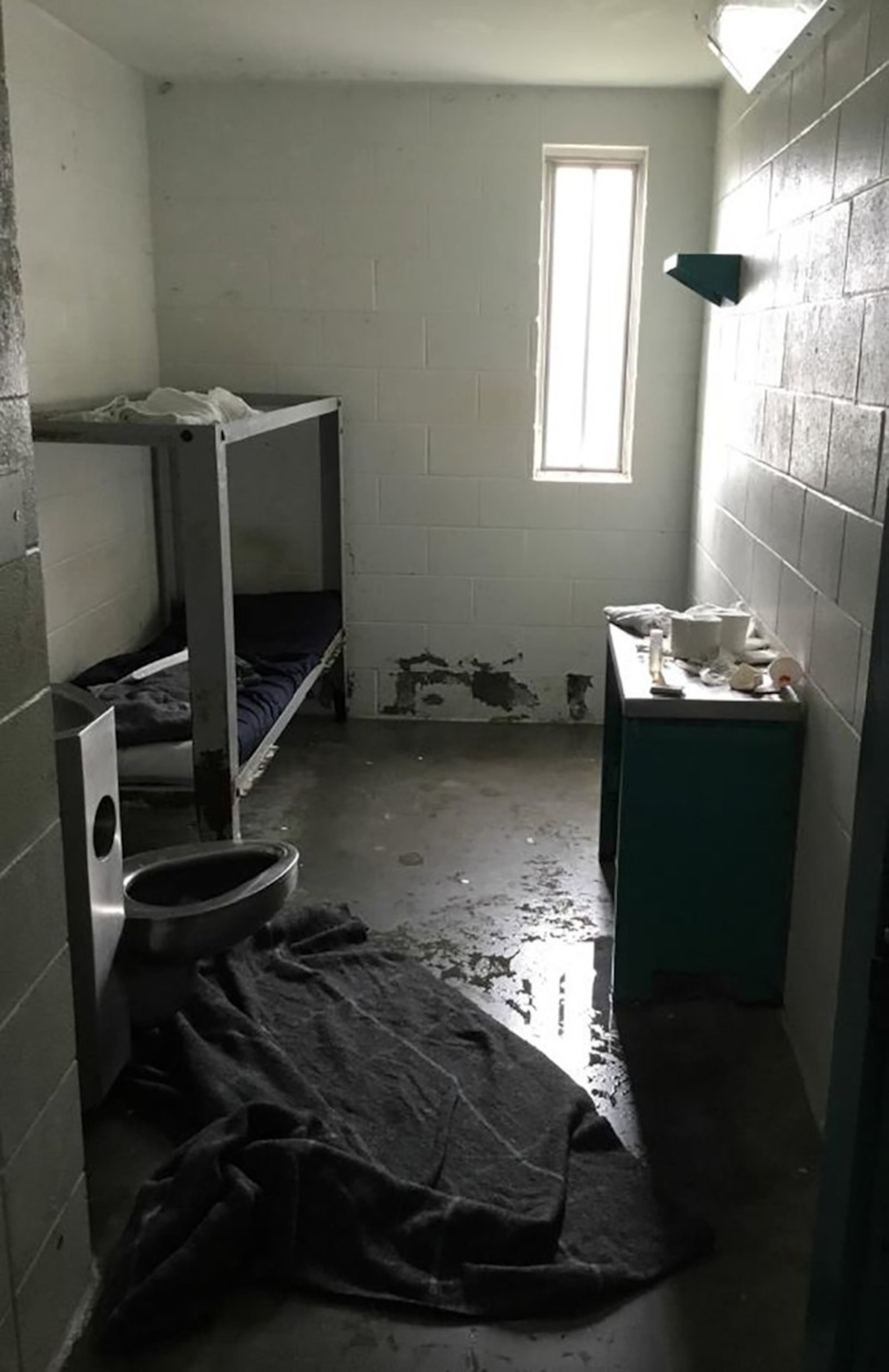Former woman inmate says Fulton jail conditions were deplorable

For months, the 39-year-old woman with bipolar disorder sat alone staring at the four walls of her cell at the south Fulton County jail that houses mentally ill female inmates.
From May 2018 to September 2018, the woman lived in isolation 24 hours a day, seven days a week, with few exceptions. Allowed only two or three showers during her stay, she became filthy and took on a horrible smell. She also began hallucinating and became so psychologically ill she couldn’t have a rational conversation with another person.
The woman's harrowing account of her stay in the South Fulton Municipal Regional Jail in Union City was detailed in a recent court filing. Identified only by her initials, S.H.P., the woman shared her story with lawyers who are suing the county over the conditions at the jail.
“The time I spent in the south Fulton jail was the most disorienting and frightening period of my life,” S.H.P. said. “I was brought so low by this experience that, today, six months later, I am still trying to recover from it. To this day, I cannot talk about my time in the jail without breaking down.”
U.S. District Judge Billy Ray has scheduled a July 15 hearing for an injunction sought by lawyers representing two female inmates and the Georgia Advocacy Office, which protects the legal rights of those with disabilities. They are asking Ray to order the county to allow the mentally ill women held at the facility to be allowed to leave their cells for up to four hours a day in appropriate settings.

During a recent hearing, county attorney Ashley Palmer said such an accommodation is not possible for all of the more than 30 mentally ill female inmates. Some are refusing to take their medications and have turned violent, she told Ray.
“There are instances where people’s safety is being placed at risk,” she said. “There are very real issues the detention officers have to deal with on a daily basis.”
Just the same, she said, efforts are being made to make sure as many women as possible are given an opportunity to leave their cells for periods at a time.
In a recent statement, Fulton County Commission Chairman Rob Pitts said he was committed to ensuring that the county “meets our constitutional responsibilities and that we are treating inmates humanely.”
At the Union City jail, he said, “we are improving facility conditions and access to behavioral health care.”
During the recent hearing, Ray said he wants to hear testimony on the allegations. “If it turns out … everybody is kept locked up, then we may have a problem,” he said. “If what I read in the complaint is all true, then I’m concerned.”
In court filings, lawyers representing the women said keeping them in isolation in highly unsanitary conditions only worsens their symptoms and leads to "decompensation, psychosis, self-mutilation and suicide."
“It’s really harming people,” Southern Center for Human Rights attorney Sarah Geraghty, who represents the women, told Ray.
S.H.P., who graduated cum laude from the University of North Carolina at Charlotte, had just left an abusive relationship and was homeless when she was arrested last year for criminal trespass and obstruction of a law enforcement officer. She was taken into custody outside an Atlanta shelter where she was trying to find a place to sleep for the night.
Over the next four months, she said, she was not allowed outside her cell for even one hour a day. She was also given just three pairs of clean underwear, which eventually became so soiled she stopped wearing any, she said. She also wore the same uniform for months.
“I felt grungy, dirty and awful,” she said.

There was no TV, nothing to read, only the four walls of her cell to look at, she said, adding that she often lacked the basic necessities such as shampoo, soap and toilet paper.
Her only drinking water was from the sink attached to the toilet in her cell, she said. “But I was hesitant to drink from it, because when I flushed the toilet, I could see water backing up to the sink bowl and sometimes the water was white and cloudy.”
She said she would sit in her cell and fantasize about drinking juice.
Like many of the mentally ill women at the south Fulton jail, S.H.P. was held there for a prolonged period of time because she was found mentally incompetent to stand trial. Finally, one day she was put in a police car and driven to a state hospital in Savannah.
There, S.H.P. said, she was given proper medication, provided new clothing and allowed to shower once a day.
Six to eight weeks later, S.H.P. was returned to the south Fulton jail and was then taken to court, where she pleaded guilty to two misdemeanor offenses. She was sentenced to time served and released from custody in November 2018.
Looking back, S.H.P. said, she wonders if she made the right decision to plead guilty. But fighting the charges may have meant spending more time at the jail.
“I could not return to that cell,” she said.


